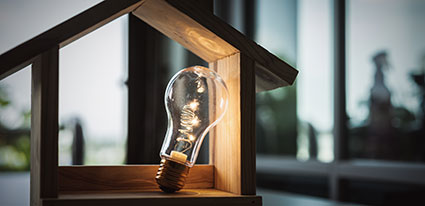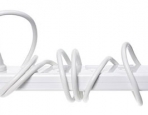40% of the energy used in the average Australian home goes to heating and cooling.
Although the average household uses 41 kWh of electricity, a realistic number for your home will vary depending on several factors. However, every home has the opportunity to decrease their energy consumption.
Whether you’re looking to decrease your electricity bill, minimise your environmental footprint, or just develop a deeper understanding of your energy usage — this article will help you.
What factors affect how much power is used in my home?
The amount of electricity used in your home is affected largely by factors you can control. Unfortunately, there are still things we can’t control, and will result in fluctuations in energy usage.
Some of the main factors affecting your energy usage are:
Household Size
One of the main factors in the amount of power used in your home is the number of residents. In most cases, electricity will not be used in rooms that are currently not in use. Therefore, the number of people in your home actively using electricity is the main factor.
Secondary factors that are related to this include the size of your home. When your home is larger, you can expect to pay more for lighting, heating, and cooling.
Electrical Appliances
Many homes have essential appliances like toasters, ovens, and refrigerators. However, some appliances like outdated lighting can have an unexpected impact on your electricity usage.
Additionally, the energy efficiency of appliances will also greatly increase or decrease the power used. Some key appliances where high efficiency is best value include air conditioning, water heaters, lights, and washing machines. These are some of the most frequently used appliances which also consume a lot of energy.
Electricity usage habits
Despite having the most energy efficient appliances, it’s still possible to have extremely high energy consumption for no apparent reason. This could be linked to your electricity usage habits.
The daily habits of the residents in your home that affect electricity usage can include:
- Turning lights off when leaving rooms
- Keeping computers turned on
- Usage of air conditioning
- Frequency of machine washing
- And more…
The longer and more frequently you have electrical appliances running, the more electricity you will use. As obvious as it sounds, it’s extremely common to develop habits that result in unnecessary energy consumption. While it may seem that you’re only saving a few cents worth of electricity per hour, over the course of the day this can add up. If these usage habits are left unchecked, over the course of the coming years, you’ll be using a lot more energy than you otherwise would have.
Power usage by room
Some rooms in your home may use significantly more power than others. This includes kitchens which have appliances with significant power usage.
- Refrigerators use an average of 1 to 2 kWh per day
- Ovens running between 2,500 – 5,000 watts use an average of 2 kWh per hour of cooking
- Dishwashers use 1.5 kWh on average to wash a single load
However, other rooms such as your bedroom may only require power for lighting and potentially heating. This could lead to:
- 1 kWH per 10 hours of usage with a 100 watt lightbulb
- 19 kWh running a fan throughout the day
Energy saving audits
Want to save money on electricity costs and decrease your environmental footprint?
Energy saving audits allow professional electricians to visit your home and conduct thorough environmental audits in your residential property. By inspecting your internal lighting, electrical wiring, switchboards, and inspection of potential faults — electricians can find areas to decrease your electricity usage and save money.



